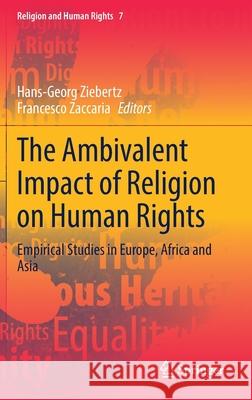The Ambivalent Impact of Religion on Human Rights: Empirical Studies in Europe, Africa and Asia » książka
topmenu
The Ambivalent Impact of Religion on Human Rights: Empirical Studies in Europe, Africa and Asia
ISBN-13: 9783030704032 / Angielski / Twarda / 2021 / 341 str.
Kategorie:
Kategorie BISAC:
Wydawca:
Springer
Seria wydawnicza:
Język:
Angielski
ISBN-13:
9783030704032
Rok wydania:
2021
Wydanie:
2022
Numer serii:
000129279
Ilość stron:
341
Waga:
0.67 kg
Wymiary:
23.39 x 15.6 x 2.06
Oprawa:
Twarda
Wolumenów:
01











